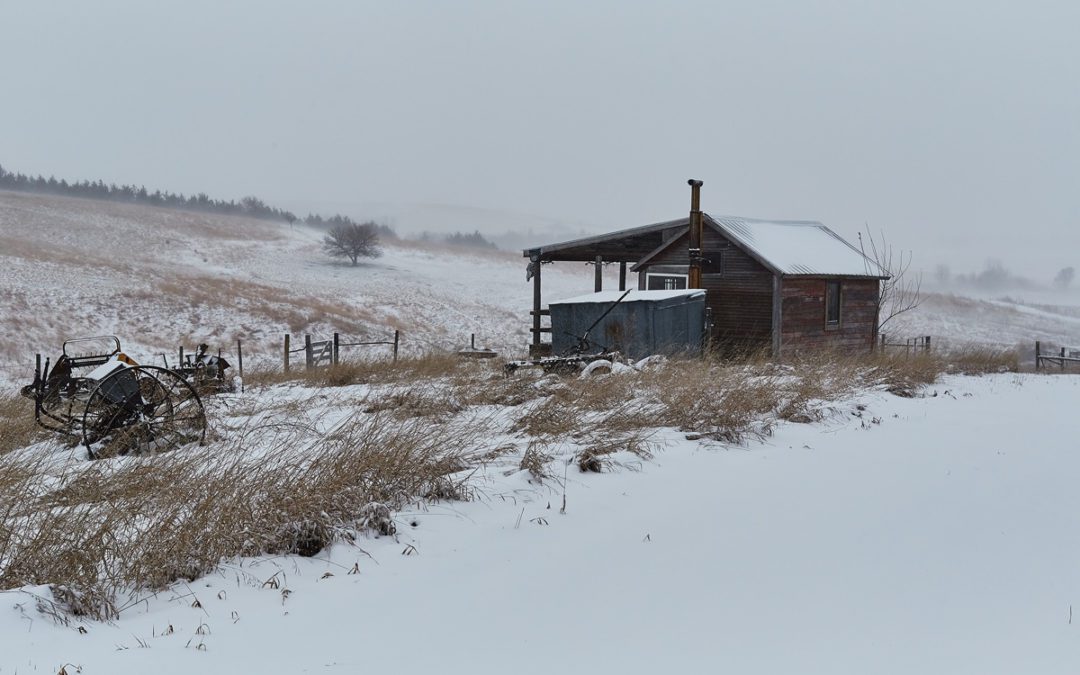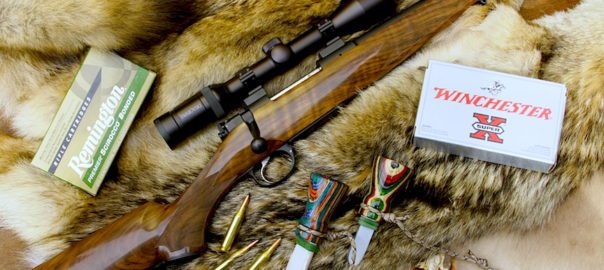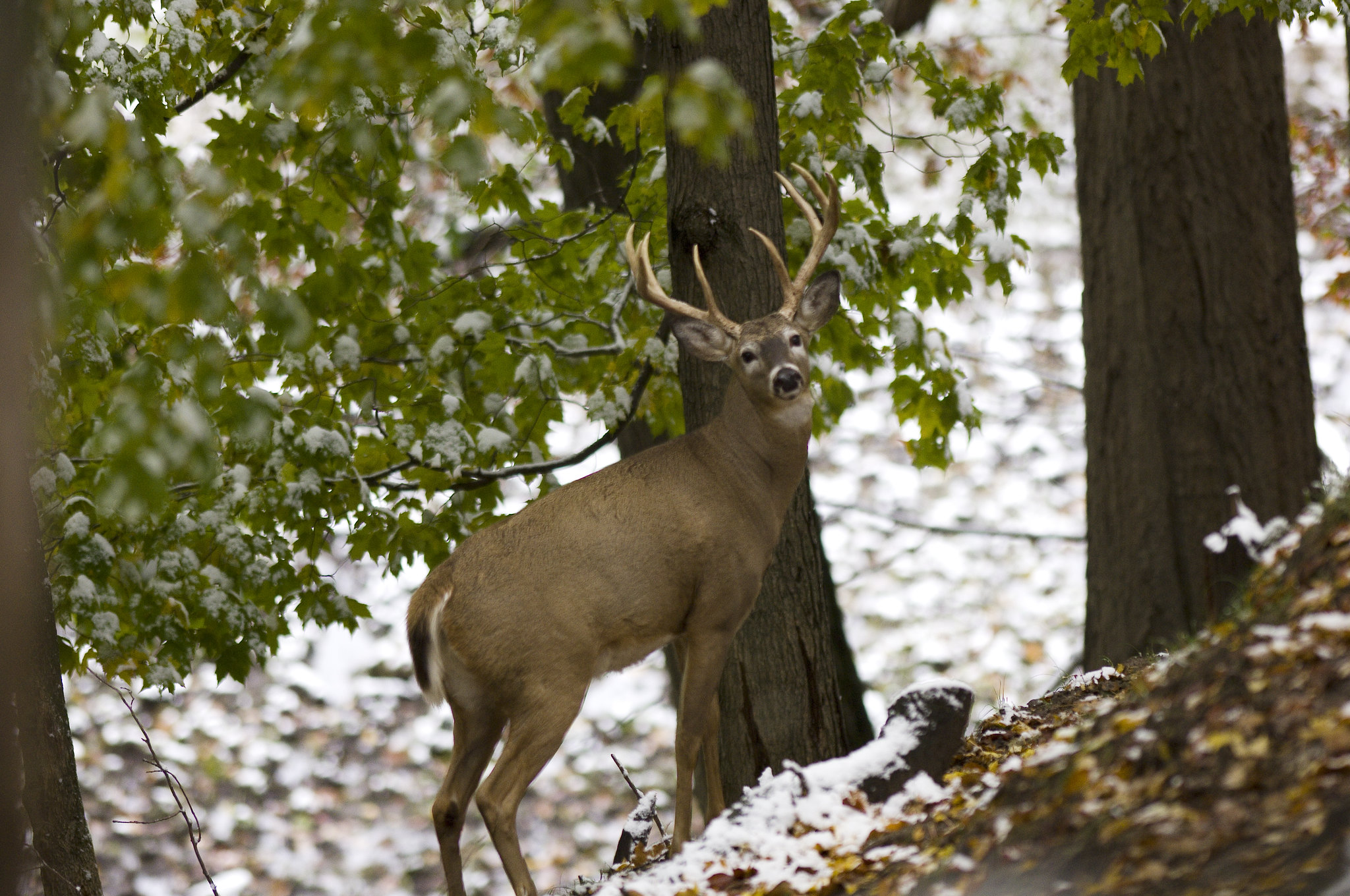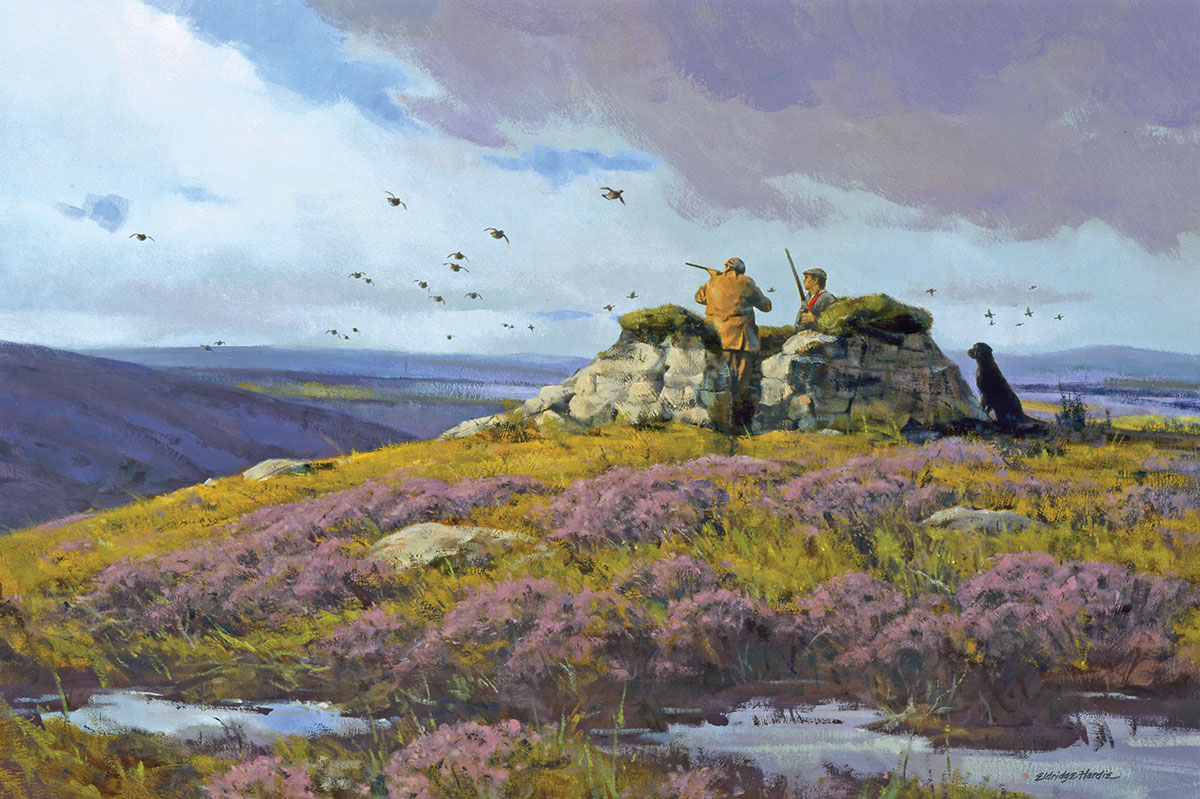Originally published as a piece in his “Tailfeathers” column for Sports Afield, this tale is a splendid example of the author’s genius in pulling on the heartstrings of his readers. It subsequently appeared in one of the many collections of Hill’s tight, bright little essays, Mostly Tailfeathers (1971).
I guess I’ve been deer hunting for something over 30 years, and I suppose I’ve killed my fair share of deer. I can look back on many moments when everything seemed to come alive at the fleeting footfall of a buck—his very awareness made the forest ring with silence. These times are everlasting in the memory, but even more memorable are the times when I’ve been really warm.
Deer hunting and subzero weather seem to go hand in hand in my part of the East. And I doubt it has ever been colder on an opening day than the year I got my very first buck.
I woke up that morning about four and crept downstairs to start the fire in the kitchen stove. About the time the fire got going good, the men began to drift in from early morning chores. The kitchen smelled wonderful once all the men had gotten warm. The air was heavy with woodsmoke, tobacco, odors of dog and barnyard. And the not-so-secret source of most of these damp smells was the long-lost and wonderfully warm felt boots.
Felt boots were a standard item in every farmer’s wardrobe. If you remember, they were made in two parts. A long, thick, felt, socklike affair that came to the knee was covered by a separate heavy rubber shoe that came just above the ankle and fastened by two or three metal buckles. They were heavy as hell, but they were warm! Naturally I had a pair. I also had on a heavy woolen union suit (over a pair of regular underwear), two pairs of heavy bib overalls, I forget how many shirts, and topping all this was a blanket-lined denim coat we called an “overall jacket.”
My grandfather put me on the first stand, behind a giant, fallen chestnut log. I was told to stay put.
“What if I shoot a deer?” I asked, positive that I would.
“Stay put,” was the answer.
And stay put I did. I really didn’t have too much choice. Wrapped all around me was a giant horse blanket, the kind with a raft of buckles and straps on it. Nestled between my legs was a kerosene hand lantern. I sat there like a human tent with my own personal furnace going.
In those days, we didn’t worry too much about a deer smelling any of us. I guess because we all smelled like so many horses and cows ourselves. If I didn’t smell like a horse, it wasn’t the fault of the blanket and the kerosene lamp forcing the odor out for a couple of country miles. I probably would have smelled like a horse anyway—and the outfit was plenty of insurance.
The real point of all this is the absolute fact that I was deliciously warm. I was more than warm—I was downright cozy. By the time the sun had risen completely over the horizon, I had, of course, eaten all my lunch.
Grandpa came by about ten o’clock and asked me how I was. I was just fine and told him so, adding that I was getting a little hungry. He gave me a couple of sandwiches and a handful of cookies that must have weighed a quarter of a pound apiece, and told me again to stay put. I don’t think I could have gotten out of that rig if I’d wanted to, but I promised him, and off he went again.
Under the blanket, I held my most cherished possession—an old 1897 Winchester pump gun. It wasn’t really mine. Pop had borrowed it for me to use. The 30-inch, full-choke barrel stuck up out of the blanket like a chimney, and I kept swiveling it around as best I could without disturbing the oven arrangement. I can tell you, I was mighty eager to use it.
Along about noon, I was about half asleep from so much food and the warmth from the old lantern when a sharp crack of a broken branch brought my eyes open. Against the snow, about a quarter-mile off through the woods, I could see the four legs of a deer cautiously working its way down toward my stand. Buck or doe, I couldn’t be sure because of the hazel and birch thickets between us.
As slowly as I could, I eased the old ’97 up out of the blanket and across the chestnut log and began following the legs of that deer closer toward me through the woods.
About 50 yards directly in front of me was a tiny brook with a clearing or two on the other side along the bank. With absolute certainty, the deer—whatever it was—was heading toward one of those clearings.
I eased the hammer back on the Winchester with a very shaky thumb; buck fever was coming on a little faster than the deer. But if I had seen this sight once in my dreams and my imagination, I’d seen it a thousand times.
I couldn’t take my eyes off those four legs . . . three or four more steps, and he’d be in the clearing by the brook. And suddenly, there he was! A buck—a big curving Y.
Somehow, as the barrel swung back and forth over the clearing, I managed to shoot. Just one shot. I don’t believe I could have pumped that gun if my life depended on it.
At the shot, the buck twitched, stepped carefully back from the brook and, just as cautiously as he had come down, began to walk away as I helplessly watched him. I really never thought of the second shell (I was only allowed to have two buckshot). With a feeling of abject shame, I saw him disappear into the woods. I had missed him. How would I ever tell Grandpa and Pop?
Well, I sat there feeling lower than a cricket’s knee. If I hadn’t been 11, I might have cried. Sooner or later, I knew, the hard part had to come—in the form of my father, and it wasn’t 15 minutes until he showed up. He was kind of smiling, as I remember it.
“You shoot?” he asked.
I nodded.
“Where’s the dead deer?”
I said there wasn’t any dead deer; that he had just walked away.
“Which way did he walk?”
“Around behind that big beech tree was the last I saw,” I told him, fearful that I’d be dealt with pretty harshly for wasting a shell.
“Well, you’d better come along and show me,” Pop said as he uncovered me, blew out the lantern and started off toward the beech tree. He made me unload the gun, and I felt pretty small as I shucked out the empty shell that had sat in the chamber, forgotten. I put the other shell in my pocket and trudged along behind him.
I should have suspected something when he quickened his pace as we passed the spot where I had last seen the buck, but deep in misery and head down, I just tried to walk in his tracks and keep up. I almost fell over the deer.
“This is him, isn’t it?” he said, standing by a fallen forkhorn, about 50 yards beyond the big beech.
“Yep,” I said, trying to indicate by my tone of voice that I wasn’t the most surprised person in the world.
“Well, boy, you’d better drag him down by the brook so’s we can clean him out.”
I guess I could have dragged a bull moose right then, and drag I did, right into the flowing water where we cleaned and washed him out.
By the time the other men had gathered, and I told how I had shot my first deer, the carcass had frozen solid.
Grandpa had come along and gathered up my blanket and lantern and asked me if I’d been warm enough. I said I had, but that I was getting mighty cold again.
“Here, boy,” he said, handing me a two-foot loop of rope, “warmest thing in the world.”
“How’s that going to keep me warm?” I asked.
“Simple,” he said. “ Just wrap one end around the deer’s neck and the other around your hand and start walking toward the wagon.”
Well, I miss the old felt boots, and I still think the blanket—provided it smells like a dapple-gray—and the lantern are pretty comforting. But to really keep a deer hunter warm, there’s nothing like a two-foot rope around a man’s hand, with a sleek December buck on the other end.




